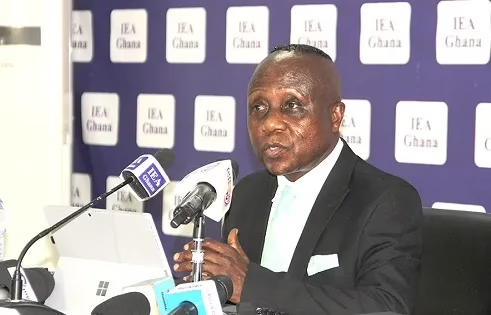IEA Urges Retention of Betting Tax Ahead of 2025 Budget Presentation
The Institute of Economic Affairs (IEA) has urged the government to retain the Betting Tax, arguing that it serves as both a revenue stream and a tool to curb excessive gambling. This call comes just hours before Finance Minister Dr. Cassiel Ato Forson presents the 2025 Budget Statement to Parliament.
Betting Tax: A Revenue Tool or a Burden?
While the Mahama administration has pledged to scrap the Betting Tax, along with other levies such as the E-Levy, COVID-19 Levy, and Emissions Tax, the IEA insists on reducing the tax from 10% to 5% instead of a complete removal. The think tank argues that a revised tax rate would still generate revenue while alleviating the financial burden on betting industry stakeholders.
Ghana’s Low Tax Revenue-to-GDP Ratio
With Ghana’s tax revenue-to-GDP ratio lingering at 13-14%—significantly lower than the 20-25% average of middle-income countries—the IEA highlights the need for broader tax reforms to enhance revenue collection.
To bridge this gap, the IEA recommends:
- Plugging revenue leakages through stronger tax compliance measures.
- Implementing an e-commerce tax to capture digital transactions.
- Introducing a windfall tax on highly profitable sectors such as telecommunications, extractives, and banking.
For more insights into Ghana’s tax policies, visit the Ghana Revenue Authority.
Call for an Independent Value-for-Money Department (IVMD)
To enhance fiscal discipline, the IEA is advocating for the establishment of an Independent Value-for-Money Department (IVMD), a proposal initially championed by President John Mahama. According to the IEA, such a body could save Ghana 3-4% of GDP, equivalent to the country’s current capital expenditure (CAPEX) budget.
A well-structured IVMD would:
- Ensure efficient use of public funds.
- Reduce wasteful government spending.
- Improve transparency in procurement and public sector projects.
Read more about Ghana’s fiscal policies on the Bank of Ghana’s official website.
Increasing Capital Expenditure for Economic Growth
Currently, Ghana’s capital expenditure (CAPEX) stands at just 3-4% of GDP, a figure the IEA believes is too low for sustainable development. The organization is calling for a gradual increase in CAPEX to at least 10% over the medium term to drive:
- Infrastructure development.
- Job creation.
- Improved living standards for Ghanaians.
For more on Ghana’s economic performance, check out the Ghana Statistical Service.
Striking a Balance Between Revenue and Expenditure
While advocating for tax reforms, the IEA has also emphasized the need for the government to strike a balance between revenue generation and responsible expenditure. Key sectors such as health, education, and infrastructure must not suffer budgetary cuts in the process of fiscal adjustments.
As the 2025 Budget unfolds, all eyes will be on the government’s strategy to boost revenue without stifling economic growth. Will the administration heed the IEA’s recommendations, or will it pursue alternative fiscal policies?
Stay tuned for expert analyses and updates on Ghana’s economic policy direction.



